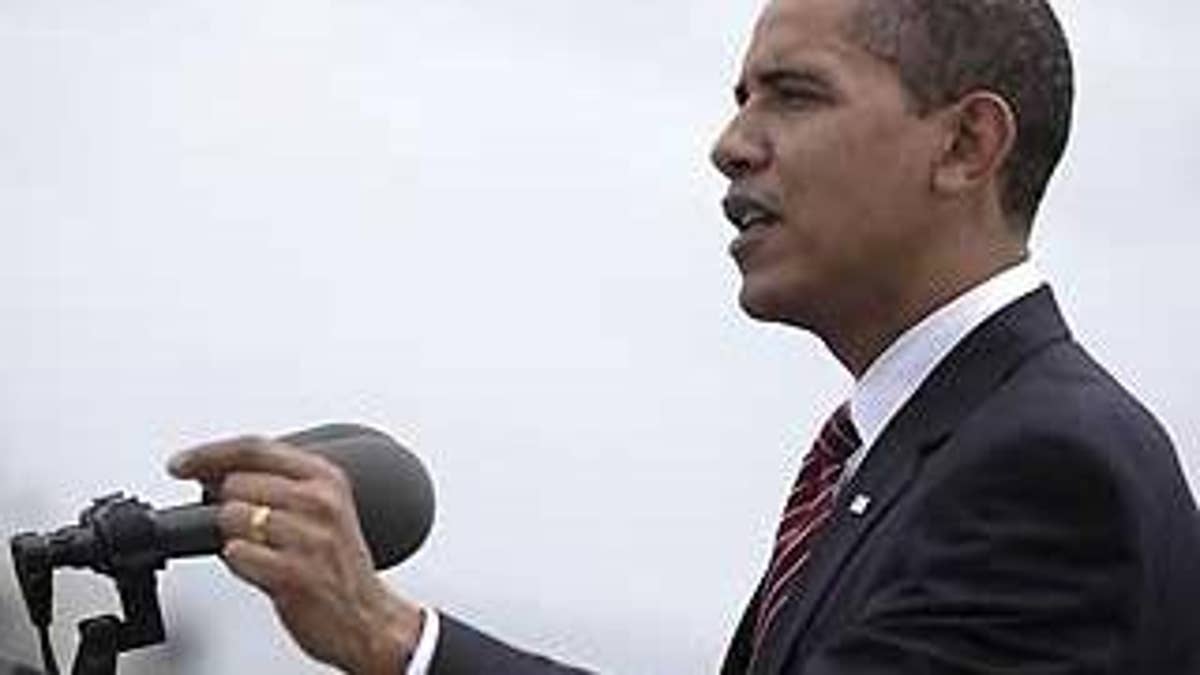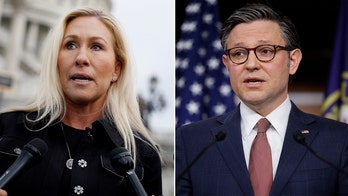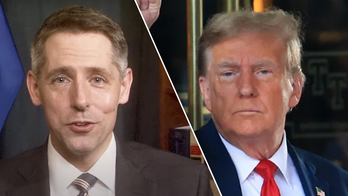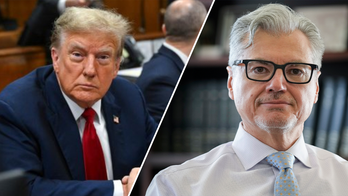
President Obama acknowledged Monday that his call to cut $100 million from the federal budget represents a drop in the bucket, but he insisted that the small savings will eventually add up to a lot and that it will help address what he called a public "confidence gap" over government spending.
From going paperless to eliminating multimillion-dollar contracts for companies that create logos, Cabinet agencies were laying out a number of ways to trim the fat from the federal budget as Obama held his first Cabinet meeting to discuss those savings.
"We have an obligation to make sure that this government is as efficient as possible, and that every taxpayer dollar that is spent is being spent wisely," Obama said.
Obama admitted that $100 million represents a minuscule fraction of his $3.6 trillion budget proposal, and will do little to erase the more than $1.2 trillion deficit that has become the rallying cry of fiscal conservatives.
But, he said, "$100 million here, $100 million there, pretty soon even in Washington it adds up to real money."
"None of these savings by themselves are going to solve our long-term fiscal problems. But taken together they can make a difference and they send a signal that we are serious about changing how governments operate," Obama said.
The president acknowledged the public dissatisfaction with government spending that culminated in hundreds of anti-spending and anti-tax "tea party" protests nationwide last week.
"We also have a deficit, a confidence gap when it comes to the American people, and we've got to earn their trust," Obama said. "They've got to feel confidence that their dollars are being spent wisely."
The White House released a list of cost-cutting measures Monday that marked a start to what Obama pledges will be long-term fiscal responsibility.
-- The Veterans Affairs department has canceled or delayed 26 conferences, projected to save nearly $17.8 million. The department will be using less expensive alternatives as well, like video conferencing.
-- The Department of Agriculture is working to combine 1,500 employees from seven office locations into a single facility in 2011 -- expected to save $62 million over a 15-year lease term.
-- The Department of Homeland Security estimates it can save up to $52 million over five years by purchasing office supplies in bulk. It also estimates it can save $3 million by ending consulting contracts to create new seals and logos.
-- Both the Department of Justice and State Department propose going paperless with specific programs. Doing so is projected to save $6.7 million on the Justice side over five years, and $1 million on the State side in the first year.
-- The Department of Education expects to save $2 million annually by reducing the number of computers provided to staff.
The president's first Cabinet meeting had a Hollywood tinge to it. Like the main character in the fantasy "Dave," Obama appeared to be trying to work the nation's books in one swoop.
Obama wants his Cabinet agencies to report a collective $100 million in savings in the next 90 days. To give some context, $100 million is the equivalent of 402,000 iPods, or 2.16 million barrels of oil, or about 4,500 Toyota Prius cars. (That may sound like a lot, but Obama recently announced plans to buy 17,600 American-made, fuel-efficient cars for the government fleet.)
To help achieve his goal of an efficient government, Obama announced the appointment of Jeffrey Zients, a founder and managing partner of the investment firm Portfolio Logic, as chief performance officer. Zients, who also will serve as deputy director for management of the Office of Management and Budget, will work to streamline processes and cut costs.
On that front, Obama gave notice he wants to act quickly.
Obama also cited Defense Secretary Robert Gates' plan to overhaul contracting procedures and eliminate billions in wasteful spending and cost overruns.
The president earlier praised Sens. John McCain, R-Ariz., and Carl Levin, D-Mich., who are leading the effort in Congress.
Republicans have kept up a steady stream of criticism of Obama's spending, both of his $787 billion stimulus plan and his $3.6 trillion budget proposal.
"Earlier this week, President Obama said that we need to get serious about fiscal discipline by trimming waste in the federal budget," Rep. Kevin McCarthy, R-Calif., said in the GOP address. "Republicans couldn't agree more. We want to work with the president to get our financial house back in order."
"It's irresponsible to borrow more than all previous American presidents combined. And it must stop if we want to get our economy moving again," McCarthy said. "When will all this spending and borrowing end?"
Republicans say that budget cuts are a worthwhile effort, but emphasize the size of the Democratic spending bills.
McCarthy singled out "the trillion-dollar 'stimulus' bill the $410 billion dollar 'omnibus' spending bill and the massive, fiscally irresponsible Democratic budget that doubles the debt in just over five years, and triples the debt in just over ten years."
FOX News' Major Garrett and The Associated Press contributed to this report.




